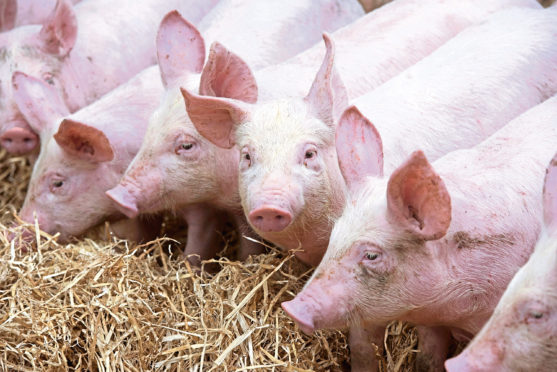No-deal Brexit tariff proposals for pork could force UK farmers out of business, the National Pig Association (NPA) has warned.
In a letter to Defra Secretary of State, Theresa Villiers, the association called for an urgent review of tariffs on pork products if the UK crashes out of Europe without a deal.
NPA chairman, Richard Lister, said the proposals would allow imports of pork to enter the UK at a tariff rate of 3-5%, compared to current tariffs of 45% as a result of being a member of the EU.
He said the current proposals would also result in UK pork exporters facing high tariffs on products going to the EU – a market worth £300 million.
“The present set of proposed tariffs from the government leave our sector completely exposed to unlimited imports and, given the fact that we would lose a big proportion of our exports to the EU, producers would be going out of business very quickly as lower-standard imports overwhelm the market,” said Mr Lister.
“History has shown that once producers have been put out of business, the damage is irreparable.”
He said analysis by levy body AHDB suggested import tariffs of 3-5% could easily be absorbed by US exporters, as US pork prices are currently more than 50p per kg lower than those in the UK.
“We fear that under the tariff rates currently proposed, the UK pig sector and consumers would be exposed to significantly cheaper exports from countries like the USA, produced to standards that are not legally permitted in the UK,” added Mr Lister.
“Previous experience has shown this would force UK pig producers out of business and export more of our production elsewhere.”
A Defra spokesman said the government was proud of the UK’s high standards of food safety, animal health and on-farm welfare.
He added: “We will only accept imports that meet our high food standards and we will not compromise on these standards in pursuit of any trade deals.
“The temporary tariff policy will be in place for up to 12 months and we will remain open to any exceptional changes to meet the needs of UK businesses and consumers.”
